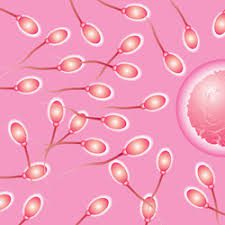 In addition to conventional IVF cycles, HRC Fertility offers natural or minimal stimulation of IVF. Some patients may not benefit from high doses of medication used in conventional IVF cycles and so using less medication, as in a natural or minimal stimulation protocol, may be more appropriate.
In addition to conventional IVF cycles, HRC Fertility offers natural or minimal stimulation of IVF. Some patients may not benefit from high doses of medication used in conventional IVF cycles and so using less medication, as in a natural or minimal stimulation protocol, may be more appropriate.
Why a natural cycle might work for you
At the beginning of the menstrual cycle, several follicles containing immature eggs begin to mature in a woman’s ovary. However, only the dominant follicle, the one that most efficiently responds to FSH, will release an egg during the process of ovulation. The other follicles undergo a natural process of cell death or atresia.
In conventional IVF, women will take fertility medications containing high levels of FSH to salvage the follicles that otherwise would have been lost that cycle. Despite this boost, some women will produce few and poor quality eggs that won’t turn into viable embryos. For these patients, using less medication or no medication may be the best option.
Good candidates
Doctors at HRC may recommend a natural or minimal cycle IVF to the following women:
- Women with low ovarian reserve who had previously responded poorly
- Women in their 40s with low ovarian reserve
- Women who did not respond well to high doses of medications despite normal ovarian reserve markers
Some women may opt for natural or minimal stimulation IVF if they are:
- Concerned about using high levels of medication to stimulate their ovaries for any reason
- Concerned with the potential ovarian hyperstimulation syndrome (OHSS) which can sometimes be a complication of stimulation with high doses of medication
Benefits and concerns
Although the chances of pregnancy with minimal stimulation and natural IVF are lower than with conventional IVF, there are some benefits to consider: Most women can undergo these procedures with conscious sedation rather than general stimulation since only a few eggs are retrieved and a very thin needle is used for retrieval, and there’s a lower cost due to less medications and minimal anesthesia.
What a cycle entails
A natural cycle uses no drugs to facilitate egg production except for a single injection to trigger ovulation in anticipation of the egg retrieval. Your doctor may also prescribe an antagonist, a medication to prevent premature ovulation, as well as progesterone supplementation after retrieval in order to prepare the uterus for pregnancy.
During a minimal stimulation IVF cycle, a woman will receive an oral medication (clomiphene citrate – Clomid) in addition to low doses of gonadotropins. A small number of eggs are retrieved and premature ovulation is avoided with the use of Clomid and sometimes with an antagonist medication as well.
Expected success rates
Since fewer eggs are retrieved, there are fewer resulting embryos and the chance of pregnancy will be lower than conventional IVF for both minimal and natural IVF. Conventional IVF is the treatment of choice for women who can respond appropriately to stimulation medications.
HRC customization
Natural and minimal IVF cycles are not for everyone. In fact, our physicians may strongly recommend not going that route. The most important consideration is if your physician feels these approaches would give you a similar chance of conceiving when compared to conventional IVF while using less medication and incurring less cost. If that is the case, natural or minimal stimulation IVF might be the answer for you.
